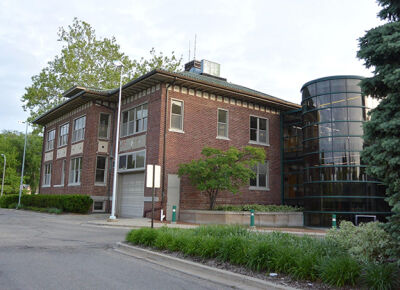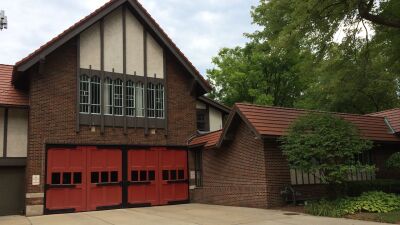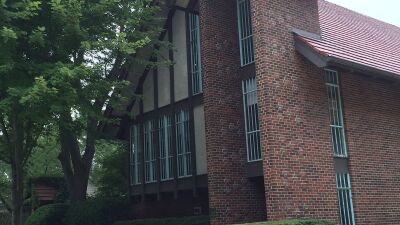GROSSE POINTE PARK — In the final regular Grosse Pointe Park City Council meeting before the Nov. 8 election, officials once again clashed over a proposed water and sewer infrastructure millage in front of voters.
Residents are being asked to decide whether or not to approve a new 2.5-mill, 10-year levy for water and sewer infrastructure repairs and improvements. If approved, the millage would take effect in December 2022 and raise $1,758,292 in its first year, which could be used to pay for work on pump stations, water and sewer mains, lead service lines, sewer resilience and drainage, water and sewer equipment, and other related expenditures.
At an Oct. 17 council meeting, City Councilwoman Christine Gallagher, who this summer voted against putting the millage on the ballot, again expressed her reservations about the millage, saying the city didn’t need the funds until 2024 and suggesting grants could cover some of the improvements.
However, other officials disagreed, with City Councilman Max Wiener saying the water and sewer fund “does not have enough money” to cover the millions in projected expenses in the coming years to make a host of repairs and improvements to the aging system.
City Manager Nick Sizeland concurred, saying that the city would “clean out the water and sewer fund” just on 2022 to 2023 projects, leaving nothing for emergency repairs.
As of June 30, 2022, Finance Director Jane Blahut said the Park had a general fund balance of about $3.4 million and roughly $1.8 million in the water and sewer fund. However, she cautioned that some money in the water and sewer fund as of the end of the 2021-22 fiscal year on June 30 was already planned for purchases in the current fiscal year, which started July 1.
Sizeland said the city applies for grants whenever possible. Wiener said grants “will accelerate” work, but the city needs additional funds immediately.
“We need to start working on this,” Wiener said. “Our infrastructure is fundamentally end of life here. … The more we wait on this, the bigger the issue is going to be.”
Wiener said material and labor costs continue to rise, making work more costly the later it’s done.
Over the last decade, officials said the city has spent more than $1 million repairing water main breaks alone, and Wiener said that without replacing old mains, the Park risks using up all of its existing funding just on repairs, not projects that would improve system reliability.
“We’re doing our best to be up front and transparent,” Wiener said.
Gallagher asked about newly available Environmental Protection Agency funding of about $1 billion for infrastructure projects, which she said includes money for lead water line replacement — one of the projects the Park needs to tackle.
“Those are funds that have not been available before,” Gallagher said.
She said the state “did not get enough applicants” for those funds, so Michigan is once again asking communities to submit applications for consideration.
In March, the council approved hiring the firm Baker Tilly to review how the city funds infrastructure improvements and make recommendations for such funding. Andy Campbell, a CPA with Baker Tilly, told the council Oct. 17 that federal funding such as the EPA dollars usually goes to larger communities. He said it “would be very unusual” for the Park to receive a major grant and said his firm works with “some of the biggest communities nationwide.”
“No one is going to come bail the city of Grosse Pointe Park out. … You’re behind the communities that are disadvantaged,” Campbell said.
Grant funding typically goes to “whoever is below the state’s mean household income,” which he said was below $59,000. The Park has a larger mean income, he said.
Campbell said the city’s “best option” was to apply for a low-interest loan from the State Revolving Fund for Asset Management. Sizeland said the city intended to apply for this loan by the Nov. 1 deadline. That would cover some of the costs of repairing and replacing water and sewer infrastructure, but it still needs to be paid back if the city gets the loan, meaning that the city would still need a revenue source to cover those payments. The city’s engineers with OHM Advisors said that cities can receive up to $2 million in SRF funding.
“You’re going to need to … raise money, whether it’s through taxes or through rates,” Campbell said.
Campbell acknowledged there had been “a lot of” lack of investment in the water and sewer system.
To obtain an SRF loan, Campbell said the city would need to show it could repay it, and millage approval would do that.
Grosse Pointe Park has posted information about the millage request on its website, www.grossepointepark.org.
 Publication select ▼
Publication select ▼

























